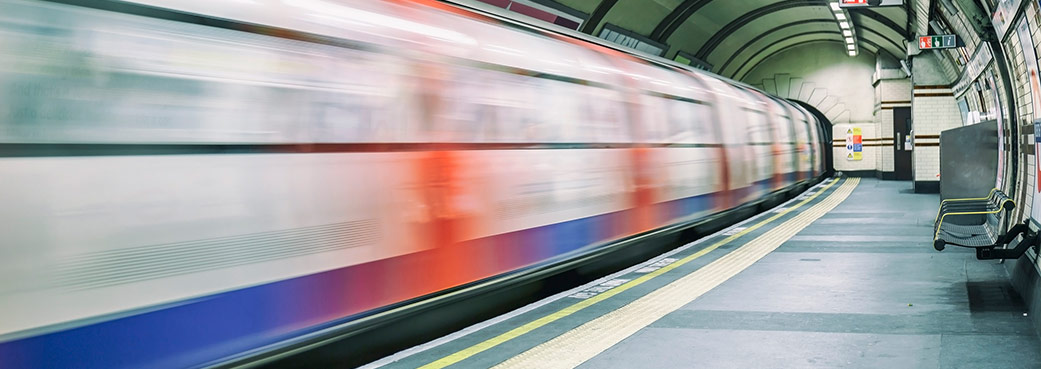
The vital foundation of your portfolio
Why having the right amount of cash can make you a better investor
Important - Active Savings helps you make your own decisions and is not personal advice. Fixed term products generally only allow access to funds at maturity. Inflation reduces the future spending power of money.

Joel Lewis
Savings Manager
Is it time to revisit your cash?
Cash. It’s not terribly exciting. You probably don’t think about it very much, but cash is the vital foundation to any portfolio. True, over the long term, investing has the potential to deliver much better returns than cash, but you can only execute an effective investment strategy if you’ve got a good cash foundation in place.
Let me explain. If you don’t have enough cash, then you’re going to find it harder to make good investment decisions. For example, if the market goes through a tough patch you’ll worry about what to do if you needed some emergency cash, and you might be encouraged to make rash investment decisions to boost your cash holdings. Often this will mean selling at just the wrong time.
And let’s be honest, there’s a lot of uncertainty around at the moment. The spectre of Brexit looms, and even with a new Prime Minister in place no one really knows what is going to happen on 31 October. Having the right amount of cash set aside will mean you don’t need to worry about the short term, and you can even top up your investments if a good opportunity arises.
The other great thing about cash is that returns are much more predictable, guaranteed even, if you use fixed term savings. So if you’re saving for something specific you’ll know exactly how much you need to save to reach your goal.
Now might just be the right time to revisit your cash and ask yourself:
- Have I got the right amount of cash?
- Could I be making more of my cash?
- Is my cash keeping pace with inflation?

How much cash should you have?
Everyone’s situation is different, so there’s no hard and fast rule. Financial planners generally suggest having three to six months’ worth of income in accessible cash, to cover any emergency expenses like a leaky roof or a broken boiler. Where you land on this scale will depend on a number of factors, including your attitude to risk.
Those in or approaching retirement should probably have a bit more in cash, say six to 12 months of income. That’s because when you’re retired your income is usually lower, so if you do ever need to dip into your savings it will take longer to replenish them.
So we’ve established a baseline for your cash, but most of us will need more than this. This is especially true if you have known expenses coming up in the next few years, these could include:
- A property purchase
- School fees or university costs
- Care home fees
- A wedding, either for yourself or your children
- Upgrading to a newer car
- A tax bill
If you’re likely to need cash for any of the above, or anything else, then you’ll need to boost your cash relative to investments.
Next – Making more of your cash

Joel Lewis
Savings Manager
Making more of your cash
In March 2009 the Bank of England lowered the base rate to 0.5%, in a bid to boost our ailing economy after 2008’s financial crisis. Make no mistake this was an extraordinary policy move, this is the lowest the Bank rate had been since records began in 1694. Even more extraordinarily rates didn’t rise above this level until August last year, almost 10 years later.
As a consequence, savings rates have been exceptionally low over the last decade. Lots of savers have, understandably, lost patience with their cash, feeling like it’s not worth the effort of staying on top of it in order to earn a competitive rate, but in our view this is a mistake.
Think about inflation. Currently it stands at 1.9%, which might not sound very high, but even at this low level the spending power of cash drops by roughly a third every 20 years.
Secondly, by taking the easy option with your cash you’re probably earning a pitiful rate. Lots of us just keep our savings in an everyday instant access account with a high street bank, but they pay some of the worst rates.
Instant access savings rates
| Barclays | 0.25% |
| HSBC | 0.15% |
| Lloyds | 0.20% |
| NatWest | 0.20% |
| RBS | 0.20% |
| Santander | 0.35% |
Based on £10,000 deposited, correct as at 22/08/19.
These accounts allow you to instantly withdraw your money at any time, with Active Savings withdrawals usually take up to one working day.
How much better off could you be?
Try our savings calculator to compare the the latest Active Savings rates against your current rate.

What about other types of assets?
It’s not just cash that offers slim pickings for anyone looking for a return. Gilts, for example, viewed as the ultimate safe haven, are currently yielding around 0.5%. Similarly, corporate bonds are yielding very little at the moment.
Gilts and corporate bonds should typically be bought with at least a five year time horizon. So if you’re comparing with cash you could look at fixed term savings, where you can currently get over 2% AER/Gross* if you fix for two years or longer, for a deposit of £1,000.
Of course the big difference with gilts and corporate bonds is that they can rise and fall in value, so you could get back more or less than you invest. Whereas with cash your capital is guaranteed.
Bonds look highly valued relative to historic measures, and if interest rates do rise at any stage this could put pressure on what they’re worth.
How much better off could you be?
Try our savings calculator to compare the the latest Active Savings rates against your current rate.
Next - The outlook for inflation and interest rates
*AER (Annual Equivalent Rate)
Shows what the interest rate/expected profit rate would be if it was paid and compounded once each year.
It helps you compare the rates on different savings products.
Gross
The interest rate without any tax removed. Interest/profits are paid gross. You are responsible for
paying any tax due on interest/profits that exceed your Personal Savings Allowance to HM Revenue &
Customs.

Sarah Coles
Personal Finance Analyst
The outlook for inflation and interest rates
In the 1998 film Sliding Doors, Gwyneth Paltrow was running for a tube train as the doors closed. In one version of reality she made it, met John Hannah and fell in love. And in the other she was left on the platform, and set off on an altogether less cheerful path. Of course both worlds were in a romantic comedy universe, so it all worked out by the time the credits rolled. In 2019 we’re set for a much less amusing remake, where the UK dashes towards a 31 October Brexit deadline, not entirely certain of where we’re going to end up.
In one version, before the doors close, we’ll have agreed some kind of positive deal and be headed for an orderly Brexit. The pound could rally on the news, but there’s unlikely to be any overnight change to tariffs and trade, jobs or government spending, so no enormous shifts in supply or demand, or shocks to the system. If in this scenario the UK’s economic dials start pointing upwards, the Bank of England may decide it’s time to start raising interest rates, but any hikes are likely to be slow and steady.
In an alternative version of reality, the doors close on 31 October without a deal, so we enter the less certain world of a No Deal Brexit. Nobody can say definitively where this would leave us, but there would probably be short-term disruption. The economy would need to go through a period of adjustment – although we can’t be certain how long or how painful that period would be.
The Bank of England would want to support the economy, so rate cuts are a possibility. At the same time, however, the pound is likely to fall, which would push up the price of imports. This would increase inflation, which in turn would put the Bank of England under pressure to raise rates to get inflation under control. The Bank itself has said it will react according to circumstances at the time and could raise or cut rates in this scenario.
Cash strategies
Getting tactical with your cash could help you find better cash rates.

All possibilities are still on the table
These aren’t the only two alternative realities on offer for October. There’s the version where October comes and goes and nothing has changed except the deadline. Plus the one where we decide the Brexit train isn’t leaving the station at all.
Meanwhile, the global economy isn’t going to be on pause just because we’re busy with Brexit. Growth has been slowing worldwide, and there have already been calls for all central banks to loosen the purse strings. If there are more signs of weakness, this could mean the Bank of England cuts rates in order to stimulate the UK economy. On the flip side, if current pressures ease, it might be in a position to tighten monetary policy and raise rates further down the line.
So depending on which future version of reality we get, we could see low inflation and low interest rates, low inflation and high rates, high inflation and low rates, or high inflation and higher rates. All of which is no help at all to savers trying to decide what to do with their money.
At the moment, the market is pricing in a small rate cut in January and the Office for Budget Responsibility is predicting inflation remaining around 2% until at least the end of 2023. However, that doesn’t mean you can count on either not to change their mind as the story unfolds.
Don’t let uncertainty stop you from making the most of your cash
In uncertain times it’s always tempting to do nothing, and wait and see what’s going to happen. However, anyone who decided to wait things out in an instant access account on the high street in March this year will have already paid the price of months of lost interest, and is still no closer to finding out what happens next.
So rather than trying to second-guess the economy, it’s best to look to your own needs. Make sure you have enough accessible cash for short term emergencies, and then look to tie up your cash for the period that suits you best in return for more interest. If you’re wary of committing for long at the moment, tying your cash up for a matter of months, or one or two years is better than nothing, and at the moment can earn you more than 2% in a two year fixed term product.
This strategy also hedges your bets in case interest rates do move, if they go up your easy access cash will benefit, and if they fall your fixed term savings won’t be affected. Remember you can’t usually take money out of fixed-term products until the term is over.
Three years down the line from the referendum, and while plenty of versions of the future have been modelled, we’re no closer to knowing which one we’ll find ourselves in when we wake up on 1 November. But you can be ready whatever the outcome. Design a cash strategy to suit your own circumstances now, and you’ll know you’ll be in the best possible position to face whatever version of reality you find yourself in.
Cash strategies
Getting tactical with your cash could help you find better cash rates.
Next - Getting tactical with your cash

Joel Lewis
Savings Manager
Get tactical with your cash
As we’ve already established, you need some accessible cash for emergencies, but there might be future expenses you’re saving for where you don’t need access to your cash right now. This is where fixed term savings can really help. You can typically fix from 3 months up to 5 years and the longer you fix for the better returns you’re likely to get.
You can even mix and match fixed terms of varying lengths, along with easy access savings, to help you get the best possible overall return, while making sure you have access to some of your money if needed.
Put your plan into action
This might all sound great in theory, but in practice it probably sounds like a headache. Who has the time to research the products on offer, and then set up their savings with all the different banks?
Fortunately there’s now an easier way. With our Active Savings service you can spread your money between easy access and fixed term savings from a range of banks and building societies, all through the convenience of one online account.
You'll have just one set of log in details to remember to manage all your savings with HL, and once you're set up there are no forms and no paperwork when you want to move your savings around. Just simple, fair saving so you're always in control.
How much better off could you be?
Try our savings calculator to compare the the latest Active Savings rates against your current rate.
Take control of your cash today
If you're ready to take control of your savings, getting started with Active Savings can be done online in minutes.
So why not join Active Savings today and improve the way you save, for the better?
This information is provided to help you make informed decisions but it isn't personal advice. If you're not sure if a course of action is right for you, please seek advice. Remember inflation reduces the future spending power of cash.
Active Savings latest rates
Please note, products can be added or withdrawn at any time.
How much better off could you be?
Try our savings calculator to compare the the latest Active Savings rates against your current rate.
Active savings really works for me. I now don’t just leave cash languishing in poor savings accounts because it is too much hassle chasing better rates. This is so easy to manage, well done Hargreaves Lansdown.MR EARDLEY, Shropshire
See how much better off you could be
Please note this calculator assumes interest rates don’t change, no other deposits or withdrawals are made, and any interest is compounded once a year.
Open an Active Savings account
With Active Savings you can pick and mix easy access and fixed term savings from a range of banks and building societies, through the convenience of one online account.
And once you're set up there are no forms or paperwork to fill in when moving money around. So you can manage your cash all in one place, with just a few clicks.
It's a great product with a variety of banks offering competitive rates with varying options like fixed term and instant access to your money, the choice is truly yours.MR OMANG, Leicestershire
The Active Savings service is provided by Hargreaves Lansdown Savings Limited (company number 8355960). Hargreaves Lansdown Savings Limited is authorised by the Financial Conduct Authority under the Payment Services Regulations 2017 with firm reference 751996 for the provision of payment services.
AER (Annual Equivalent Rate) shows what the interest rate/expected profit rate would be if it was paid and compounded once each year. It helps you compare the rates on different savings products.
Gross is the rate without any tax removed. Interest/profits are paid gross. You are responsible for paying any tax due on interest/profits that exceed your Personal Savings Allowance to HM Revenue & Customs.
Some banks offer a high introductory or bonus rate which drops to a much lower rate after a short period of time. With Active Savings, our partner banks simply offer consistently good rates.